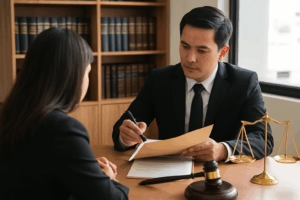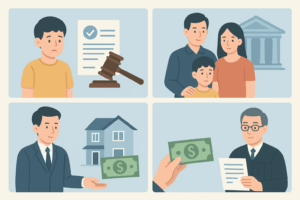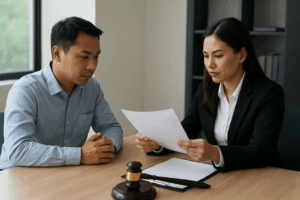Considering adopting a child in Thailand? This exhaustive guide details every aspect of the legal process, prerequisites for prospective adoptive parents, and outlines the profound impact of adoption on both the child and adoptive parents.
The adoption of a child is a life-altering decision that impacts not only the adoptive parents but also fundamentally changes the life of the adopted child. In Thailand, adoption can be an enriching experience for the adoptive family, particularly for those who may be unable to conceive naturally. Moreover, it provides the adopted child with a unique opportunity for a loving, stable, and nurturing home that they might otherwise have been denied.
This comprehensive guide aims to simplify the legal process involved in adopting a child in Thailand, from understanding the eligibility criteria for prospective adoptive parents to the necessary steps involved in making an application.
Adoption in Thailand: An Introduction:
Thailand’s adoption process is meticulously regulated by a robust legal framework designed to protect the best interests of the child. It requires several layers of verification to ensure the child’s safety and the provision of a loving environment. The system is also designed to support and guide adoptive parents through the process, providing them with the necessary resources and information to navigate the adoption process effectively.
Qualification Criteria for Adoptive Parents:
Before diving into the process, it’s crucial to understand who can qualify as an adoptive parent in Thailand. The following are the key eligibility criteria:
- The prospective adoptive parent or parents must be at least 25 years old, and there should be a minimum age difference of 15 years between the adopter and the adoptee.
- The adopter should be of sound character, maintain a stable source of income, and possess good physical and mental health to ensure the provision of a loving environment to the child.
- If the adopter is married, the spouse must also give consent to the adoption.
- For international applicants, the adoption laws of their home country must be met. The spouse must be present during the adoption process in Thailand, and the couple should be legally qualified to adopt under the laws of their country.
Consent Requirements for Adoption:
A significant aspect of the adoption process in Thailand involves obtaining consent from various parties:
- If the adoptee is aged 15 or above, their consent is a prerequisite for the adoption process.
- If the child is under the care of an orphanage or shelter, consent must be obtained from the respective institution.
- The biological parents or legal guardians of the child must also consent to the adoption.
Thailand’s Legal Adoption Process:
Adopting a child in Thailand involves several steps. Here’s a step-by-step guide detailing the procedure:
1. Initial Application and Document Preparation:
The first step for the applicant is to gather and prepare all necessary documents. These include identification papers, proof of income, and character references. These documents are then submitted to a social worker assigned to the case.
2. Assessment by Social Worker and Initial Approval:
The social worker conducts a thorough assessment of the applicant’s living conditions, character, employment status, and mental and physical health. The social worker also checks the authenticity of the documents submitted. If the applicant meets all the legal requirements, the social worker will compile a report and submit it to the Director-General and the Adoption Committee for initial approval.
3. Child Matching Process:
If the applicant is looking to adopt an orphan under the Department of Children and Youth Affairs, the Adoption Committee gets involved in a selection process. The committee takes into consideration the applicant’s profile and matches a child that aligns best with the family’s circumstances.
4. Probationary Period and Monitoring:
Upon successful matching, the adoptive parents must foster the child for a minimum probationary period of six months. During this period, coordinating agencies, particularly for international adoptions, will monitor the living conditions and well-being of the child and submit bi-monthly reports to the Department of Children and Youth Affairs.
5. Final Approval and Legal Registration:
If the probationary period proves successful and the child has adjusted well, the case is assessed one final time by the Adoption Committee. The adopter must then register the adoption legally at a Thai embassy or consulate in their home country or at a local district office if they are residing in Thailand. This formalizes the adoption and grants the child all the rights accorded to a biological child.
6. Post-Adoption Reporting:
For international adoptions, there is usually a requirement for post-adoption reporting. This is to ensure that the child continues to thrive in their new environment.
Rights and Responsibilities Post-Adoption:
Once the adoption is finalized, the adopted child gains the same rights as a biological child within the adoptive family. This includes the right to inheritance and using the adoptive parents’ surname. Conversely, the adoptive parents gain parental rights over the child, including decision-making authority regarding their upbringing.
Conclusion:
Adopting a child in Thailand is an extensive process that is regulated to safeguard the child’s best interests. It’s essential for prospective adoptive parents to familiarize themselves with the requirements and process to ensure a smooth adoption journey. Adoption can be an enriching and fulfilling experience, building lifelong bonds and providing a loving home for a child in need.
Contact : Siam Center Law Group by calling +66(0) 2 648 5041, +66(0) 2 648 5042





